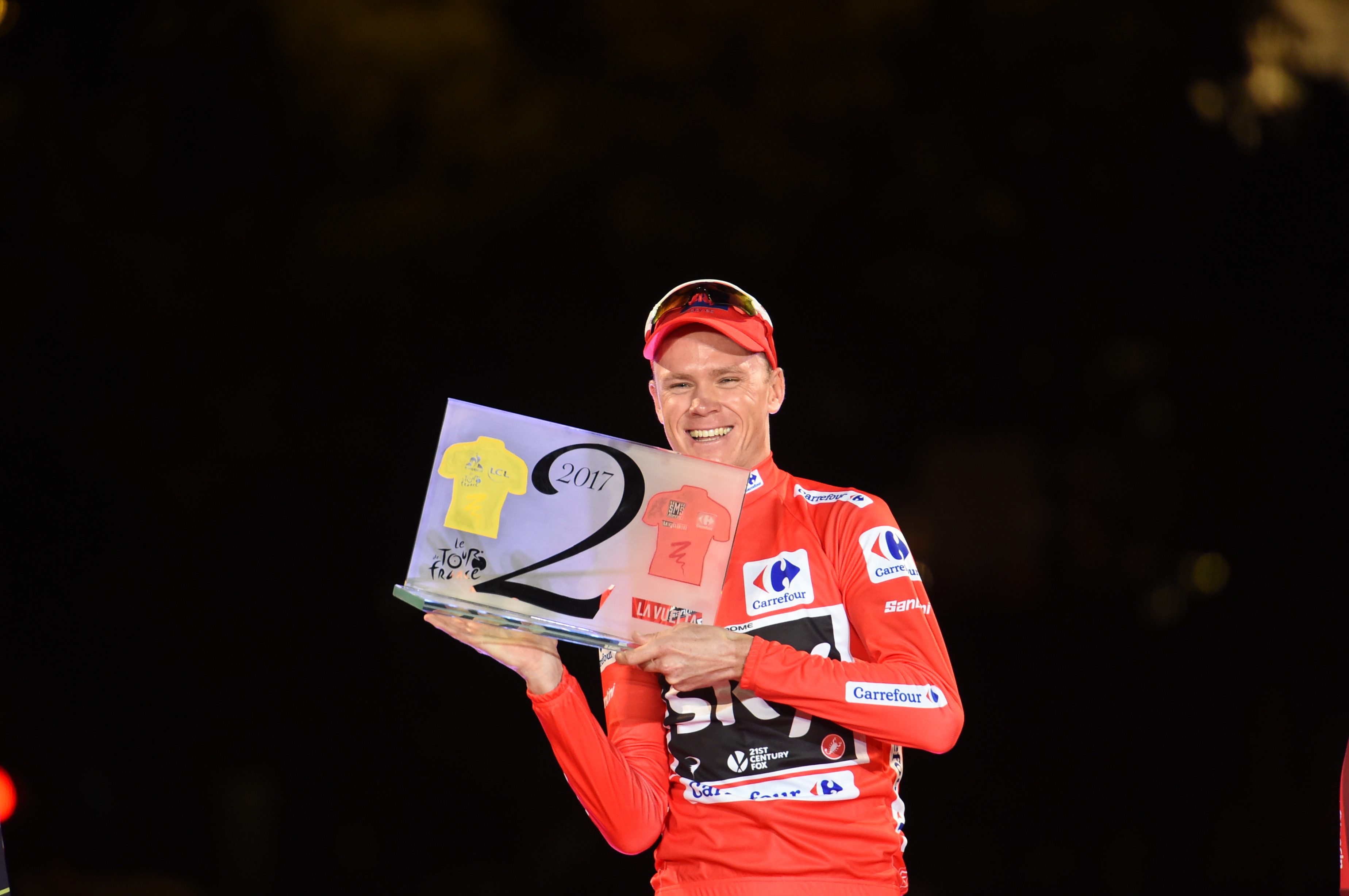Froome returns adverse analytical finding in Vuelta a España sample
2017 Tour de France and Vuelta double winner could face ban

The UCI revealed on Wednesday that Chris Froome’s sample after Stage 18 of the Vuelta a España returned an adverse analytical finding for twice the permissible dose of the asthma medication Salbutamol. The test took place September 7, three days before Froome won the race, completing a rare Tour de France-Vuelta double.
Although Froome’s A and B samples both confirm the excess Salbutamol–2,000 nanograms per millilitre (ng/ml), compared with the WADA threshold of 1,000ng/nl–the the UCI stated that “the presence of a Specified Substance such as Salbutamol in a sample does not result in the imposition of such mandatory provisional suspension against the rider.”
Froome knew of the adverse analytical finding just before he took bronze in the the elite men’s time trial at the UCI World Championships in Bergen, Norway, but it took impending reports from The Guardian and Le Monde newspapers to elicit statements from the UCI along with Froome and Sky.
06:33 Team Sky statement
06:52 UCI Statement
06:58 Guardian story breaks
If Sky & Froome had eventually managed to ‘explain’ this positive test to the UCI’s satisfaction, would we have ever heard anything about it?
— Cillian Kelly (@irishpeloton) December 13, 2017
Sky stated, “During the final week of the Vuelta, Chris experienced acute asthma symptoms. On the advice of the Team Sky doctor, he used an increased dosage of Salbutamol (still within the permissible doses) in the run-up to the 7 September urine test”, adding, “The notification of the test finding does not mean that any rule has been broken.”
Sky’s Dave Brailsford continued, “There is considerable evidence to show that there are significant and unpredictable variations in the way Salbutamol is metabolised and excreted. As a result, the use of permissible dosages of Salbutamol can sometimes result in elevated urinary concentrations, which require explanation. A wide range of factors can affect the concentrations, including the interaction of Salbutamol with food or other medications, dehydration and the timing of Salbutamol usage before the test.”
Froome reacted not only in the joint statement, but also on Twitter.
Thank you for all the messages of support this morning. I am confident that we will get to the bottom of this. Unfortunately I can't share any more information than I already have until the enquiry is complete.
— Chris Froome (@chrisfroome) December 13, 2017
The Vuelta organizers responded to the situation.
Official reaction by the Vuelta a España on the Chris Froome situation. pic.twitter.com/4a2ccHhegQ
— Jonathan Roorda (@jonathanroorda) December 13, 2017
In 2007 Alessandro Petacchi recorded 1,320 ng/ml in a Giro d’Italia sample that cost him a 12-month ban and the loss of his five Giro victories that year. More recently, in 2014 UAE-Team Emirates’ Diego Ulissi returned a sample containing 1,900 ng/ml in that year’s Giro and served a nine month ban by the Swiss Cycling Federation.
Canadian Cycling Magazine will keep readers abreast of developments in the story.
